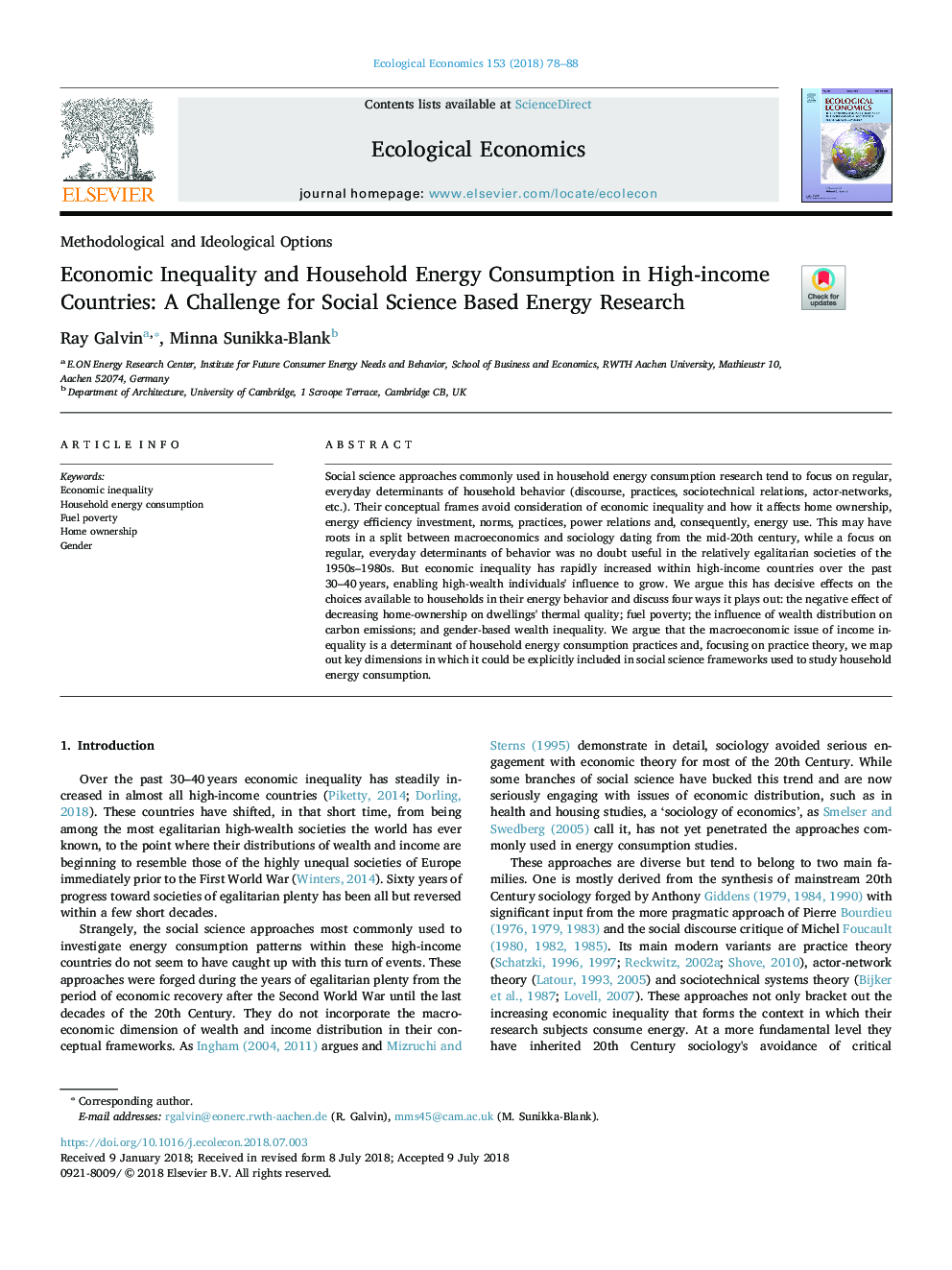| Article ID | Journal | Published Year | Pages | File Type |
|---|---|---|---|---|
| 7343812 | Ecological Economics | 2018 | 11 Pages |
Abstract
Social science approaches commonly used in household energy consumption research tend to focus on regular, everyday determinants of household behavior (discourse, practices, sociotechnical relations, actor-networks, etc.). Their conceptual frames avoid consideration of economic inequality and how it affects home ownership, energy efficiency investment, norms, practices, power relations and, consequently, energy use. This may have roots in a split between macroeconomics and sociology dating from the mid-20th century, while a focus on regular, everyday determinants of behavior was no doubt useful in the relatively egalitarian societies of the 1950s-1980s. But economic inequality has rapidly increased within high-income countries over the past 30-40â¯years, enabling high-wealth individuals' influence to grow. We argue this has decisive effects on the choices available to households in their energy behavior and discuss four ways it plays out: the negative effect of decreasing home-ownership on dwellings' thermal quality; fuel poverty; the influence of wealth distribution on carbon emissions; and gender-based wealth inequality. We argue that the macroeconomic issue of income inequality is a determinant of household energy consumption practices and, focusing on practice theory, we map out key dimensions in which it could be explicitly included in social science frameworks used to study household energy consumption.
Related Topics
Life Sciences
Agricultural and Biological Sciences
Ecology, Evolution, Behavior and Systematics
Authors
Ray Galvin, Minna Sunikka-Blank,
